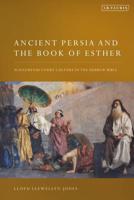Publisher's Synopsis
Excerpt from Essays (Third Series) On the Errors of Romanism: Having Their Origin in Human Nature
Difficulty of rightly estimating the temptations of those far removed from us; Lessons to be learned from the example of the Church of Rome, p. xii.; errors of that Church gradual and imperceptible in their rise; Principal Romish errors; Superstition, p. xv.; fondness for speculative mysteries, p. xvi.; and for vicarious service of God, p. xvii.; sanction given to deceit, p. xviii.; claim to infallibility, p. xix.; persecution, p. xx.; confidence in the title of Catholic; Danger of falling into corresponding faults; Essay I. Of Superstition; Apparent strangeness of the transgressions of the Israelites; Resemblance between the superstitions of the Israelites and of the Romanists, p. 3; definition of Superstition, p. 5; false security against it; Mischiefs of Superstition; Connexion of Superstition with profaneness; Occasions of Superstition; Superstitious belief in miracles, p. 18; superstitions connected with the Eucharist, p. 19; with baptism, p. 21; with prayer, p. 23; with rites of interment; Cautions to be used against the inroads of Superstition; Note A. Transubstantiation; Note B. Religious Instruction for Children; Essay II. Of Vicarious Religion; Character of Christian Mysteries, p. 36; natural tendency to set up two kinds of religion; for the priests, and for the people, p. 37; speculative theology of philosophizing divines; Real origin and progress of priestcraft
About the Publisher
Forgotten Books publishes hundreds of thousands of rare and classic books. Find more at www.forgottenbooks.com
This book is a reproduction of an important historical work. Forgotten Books uses state-of-the-art technology to digitally reconstruct the work, preserving the original format whilst repairing imperfections present in the aged copy. In rare cases, an imperfection in the original, such as a blemish or missing page, may be replicated in our edition. We do, however, repair the vast majority of imperfections successfully; any imperfections that remain are intentionally left to preserve the state of such historical works.










